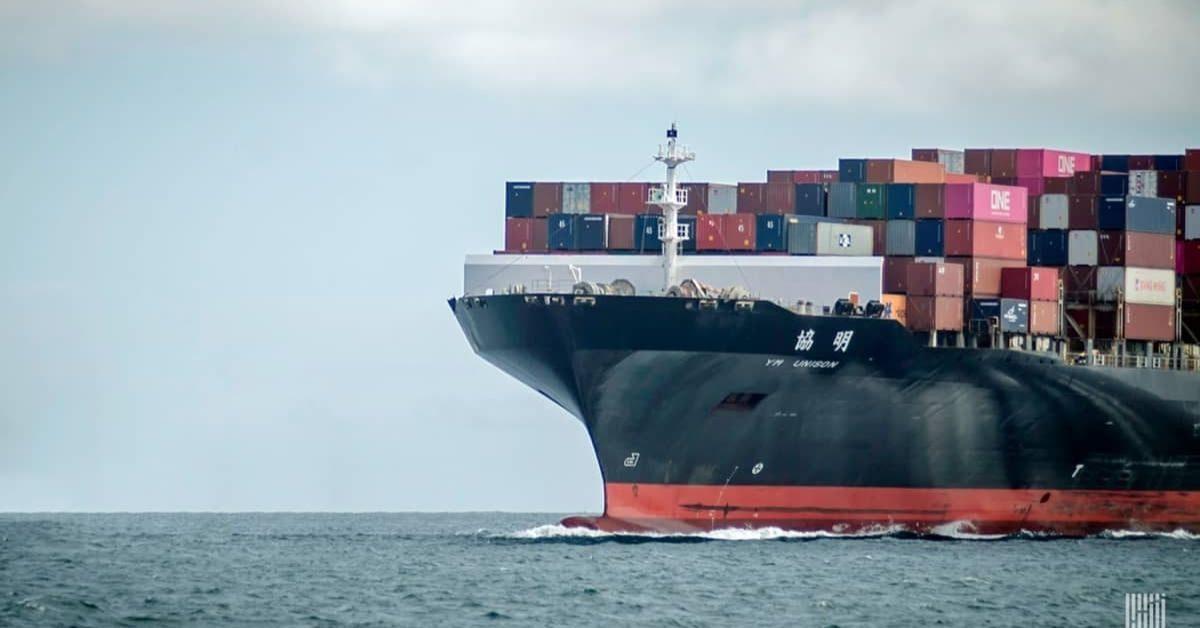Far from removing a so-called cabotage rule to permit foreign flag ships to carry all types of cargo on local routes to boost coastal shipping as proposed earlier, foreign shipping companies will find it extremely tough to run India-centric cargo business under Prime Minister Narendra Modi’s Maritime Amrit Kaal Vision 2047.
The Vision document calls for reversing the three orders issued in 2018 permitting foreign flag ships to transport export-import (EXIM) laden containers meant for transshipment, empty containers meant for re-positioning, agri-products, horticulture, fisheries, fertilizer and animal husbandry commodities on domestic routes without a license from the Director General of Shipping (DG Shipping).
“The reversal of the order numbers 1,2 and 3 of 2018 is now a requisite to increase India’s ranking in world tonnage due to the detrimental impact on Indian shipping,” the Vision document said.
The orders were issued with the objective of reducing transshipment of Indian EXIM container cargo through Colombo, reduce freight for Indian exporters and importers, increase movement of agri-products, horticulture, fisheries, fertilizer and animal husbandry commodities along the coast.
However, the actual impact was far from satisfactory.
“Containers from India transshipped over Colombo have increased. Sri Lanka Ports Authority has reported an actual increase in the volume of containers from India,” it said.
“There has been no reduction in freight for the exporter or importer. Foreign container lines imposed various surcharges on Indian export and import containers. There was zero movement of agri-products along the coast, and fertilizers in containers continue to move on Indian flag ships efficiently,” the document said.
Further, the orders had the effect of cargo that were earlier carried by Indian companies to be transferred to foreign ships. Given the uncertainty of continuity of business, Indian companies such as state-owned Shipping Corporation of India Ltd (SCI) and Shreyas Shipping & Logistics Ltd decided to charter ships instead of buying ships.
The orders also resulted in loss of Goods and Services Tax (GST) revenue to the government as foreign flag vessels do not pay GST on carriage of containers between Indian ports.
The problem of scant return cargo has been exacerbated by the Notification 1 of 2018 which allowed foreign ships to carry coastal cargo – empty/feeder – that were hitherto carried by Indian ships.
It resulted in increased profit for foreign ships with no benefit to Indian exporters. The increase in surcharges imposed by foreign ships hurt the exporter and importer in the absence of options. It also resulted in loss of volumes for Jawaharlal Nehru Port, India’s busiest state-run container gateway.
The Maritime Amrit Kaal Vision further suggested strict implementation of Atmanirbhar Bharat provisions in shipping.
“There needs to be provisions for restricting the movement of foreign flag vessels for services of government/PSU duty,” the Vision document said in reference to port crafts, small dredgers, coastal and offshore vessels and inland vessels.
The “restrictions” comprise a public-private partnership (PPP) Atmanirbhar Bharat scheme for PSU hiring/chartering service till 2023, giving first preference to Indian flag, Indian built vessels, followed by Indian flag, foreign built ships with a foreign flag getting the last preference.
Post 2023, only Indian flagged vessels to be allowed to serve PSU/government requirements. Post 2025, foreign built port crafts over 30 years of age will not be allowed for PSU/government duty. Besides, foreign flag vessels of over 20 years will not be allowed for government/PSU or private use.
The Maritime Amrit Kaal Vision has further suggested a need to ensure “strict adherence to imports on free-on-board (FOB) basis and exports on cost, insurance and freight (CIF) basis.
For cases requiring exceptions to the rule, a proper standard operating procedure (SOP) must be formulated in line with the suggestions made by the Indian National Shipowners Association (INSA), a lobby group for local shipowners.
Under FOB import deals, the responsibility of making the shipping arrangements rests with the (Indian) buyer, whereas in CIF exports, it vests with the (Indian) seller. The buy FOB and sell CIF policy was followed for several years in the case of government owned/controlled cargoes to support Indian shipping until it was diluted more than a decade ago, after strong lobbying by PSUs demanding flexibility in deciding the mode of contracts.
Lastly, the Vision document has advocated “equality” in training obligations to stimulate the growth of Indian shipping.
Any foreign flag ship employed by an Indian charterer for more than six months should be flagged in India. Foreign flag ships employed for more than six months have to comply with training obligations applicable to Indian flag ships.
Indian flag ships are by law required to hire only Indian nationals as crew and also give training slots to Indian cadets.
The right of first refusal (ROFR) licensing conditions for chartering ships through public tenders and the shipbuilding financial assistance policy “seem to have had a limited impact on attracting ships to the Indian flag”, the Vision document said.







